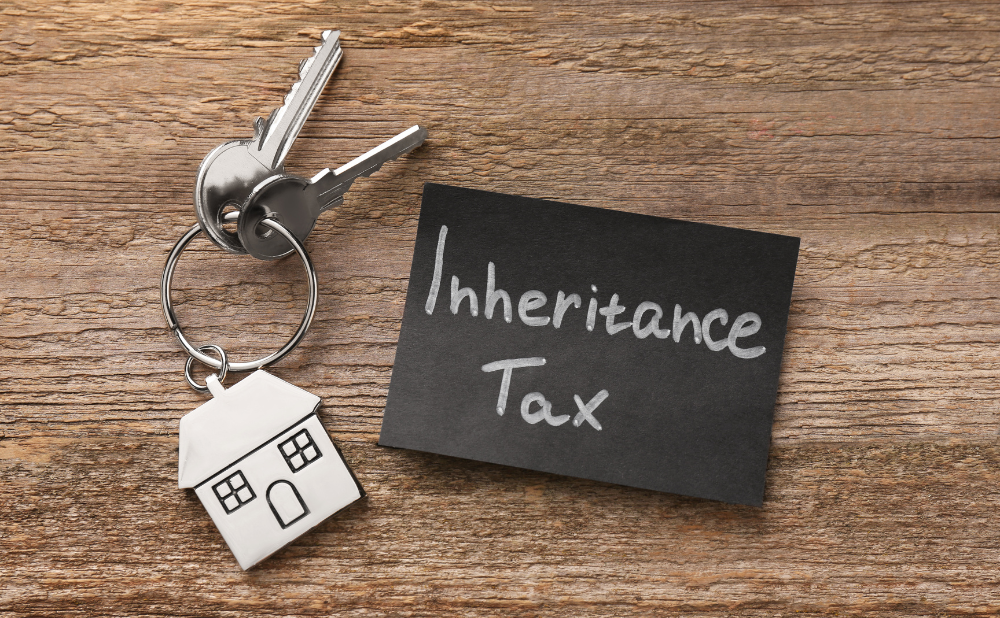Estate planning can be a complex and overwhelming process, and one question that often arises is: Does a trust avoid Pennsylvania inheritance tax? Many individuals create trusts to manage and distribute their assets, but understanding how these trusts interact with this tax is crucial to protecting your loved ones from a significant tax burden.
You’ve worked hard to accumulate your assets, and you want to leave them to your family. Minimizing inheritance taxes in Pennsylvania is likely a top priority. To achieve this, it’s essential to explore how different types of trusts interact with Pennsylvania’s inheritance tax.
Let’s delve into the world of trusts and inheritance tax to uncover the best strategies for your situation and “Does a trust avoid Pennsylvania inheritance tax?” By working with a financial professional and your estate planning attorney, you can ensure that you make informed decisions that align with your goals and protect your loved ones’ interests.
Understanding the Pennsylvania Inheritance Tax
Pennsylvania is one of the few states that still imposes an inheritance tax, which is a tax on the transfer of assets from a deceased individual to their heirs. Unlike an estate tax, which is levied on the overall value of the estate, the inheritance tax specifically applies to the assets or property that beneficiaries receive.
The tax rate is determined by the relationship between the deceased and the beneficiary. For example, some transfers are completely exempt from the tax, while others are subject to different rates depending on who the heir is. Here’s a breakdown of the inheritance tax rates based on beneficiary type:
Surviving Spouses and Transfers from a Child (aged 21 or younger) to a Parent: These transfers are completely exempt from inheritance tax. This means a surviving spouse or a transfer from a child under 21 to their parent will not be taxed, providing some relief during what can already be a difficult time.
- Lineal Descendants and Parents: Lineal descendants (children, grandchildren, etc.) and parents are taxed at a rate of 4.5%. This rate is relatively low compared to other categories, reflecting the state’s recognition of familial bonds.
- Siblings: Siblings face a higher tax rate of 12% on inherited assets. This rate is designed to balance the state’s revenue needs with the fact that siblings may not have the same immediate financial dependency on the decedent as direct descendants do.
- Other Heirs: If the beneficiary is not a surviving spouse, lineal descendant, parent, or sibling, the tax rate jumps to 15%. This category includes nieces, nephews, cousins, friends, and other extended family members or unrelated heirs.
In most cases, the executor or administrator of the estate is responsible for filing the inheritance tax return. This is done using PA Department of Revenue Form 1500, which must be submitted to the state. The executor or administrator typically manages this task for Pennsylvania residents, ensuring the proper filing and payment of taxes.
It’s important to note that Pennsylvania allows for discounts on the inheritance tax if the tax is paid early. If the tax is paid within three months of the decedent’s death, a 5% discount applies. However, if the payment is delayed, penalties and interest may accrue, so timely filing is crucial.
Understanding these rates and exemptions can help heirs plan better and avoid surprises when it comes to the transfer of assets.
Does a Trust Avoid Pennsylvania Inheritance Tax? Revocable vs. Irrevocable Trusts
When planning your estate, one of the most common questions is whether a trust can help avoid Pennsylvania’s inheritance tax. While trusts offer many benefits, such as asset management, probate avoidance, and privacy preservation, not all types of trusts shield assets from inheritance tax. To understand how different trusts can impact your tax obligations, it’s essential to explore the differences between revocable and irrevocable trusts.
Revocable Trusts: Control Comes at a Cost
A revocable trust, often referred to as a living trust, gives you flexibility and control over your assets during your lifetime. With this type of trust, you can modify beneficiaries, add or remove assets, and even revoke the trust entirely, as long as you are alive and of sound mind.
However, because you retain control over the trust and its assets, those assets are generally considered part of your estate. This means they are subject to Pennsylvania’s inheritance tax. While revocable trusts offer benefits such as avoiding probate and maintaining privacy, they do not inherently protect your assets from state inheritance tax.
As part of your estate planning, it’s important to understand that while a revocable trust may streamline the transfer of assets upon your death, it will not shield those assets from Pennsylvania inheritance tax. Consulting with a knowledgeable attorney, like those at Bumbaugh | George | Prather | DeDiana, can help ensure your estate plan is tailored to minimize tax liabilities while providing the flexibility you desire.
Irrevocable Trusts: A Path to Potential Tax Savings
An irrevocable trust offers a different set of benefits compared to a revocable trust. Once you place assets into an irrevocable trust, you relinquish control over them. The terms of the trust cannot be easily changed, and the trust cannot be revoked. This transfer of ownership is key when it comes to Pennsylvania inheritance tax.
Because you no longer own the assets held within an irrevocable trust, those assets are typically excluded from your taxable estate. As a result, an irrevocable trust can potentially minimize or even avoid Pennsylvania inheritance tax, making it a valuable tool for reducing your estate’s tax burden.
For many individuals, setting up an irrevocable trust can be an effective strategy for estate tax planning. However, due to the complexity and the need to give up control of assets, it’s essential to consult with an experienced estate planning attorney. At Bumbaugh | George | Prather | DeDiana, we can guide you through the intricacies of irrevocable trusts to help you determine if this option aligns with your long-term estate planning goals.
Strategies Beyond Trusts: Minimizing Pennsylvania Inheritance Tax
While trusts are effective tools for managing estate planning and minimizing inheritance tax, they are not the only strategies available. Estate planning is often most effective when multiple approaches work in harmony to achieve your goals. In addition to trusts, there are other strategies that can help minimize Pennsylvania inheritance tax liability, often with the guidance of estate planning professionals.
Gifting Assets During Your Lifetime
One powerful strategy for reducing your estate size and, consequently, your inheritance tax liability is gifting assets during your lifetime. Pennsylvania does not impose a gift tax, making it a favorable state for making gifts to heirs. By transferring assets while you are still living, you can significantly reduce the taxable value of your estate, potentially lowering the inheritance tax your beneficiaries would owe upon your death.
For 2025, the federal government allows an annual gift tax exclusion of $19,000 per person. This means you can give up to $19,000 to each individual without incurring any federal gift tax. If you make periodic gifts each year, this strategy allows you to reduce the size of your estate over time, while also giving your heirs financial support before your passing. This proactive approach not only lowers your estate’s value but can also foster family support and minimize the tax burden on your beneficiaries.
Joint Ownership and Tenancy by the Entirety
Another strategy to avoid or minimize inheritance tax is joint ownership of property, particularly in the form of joint tenancy with right of survivorship or tenancy by the entirety. This is particularly beneficial for married couples and lineal descendants.
When you establish joint tenancy with right of survivorship, the surviving co-owner automatically inherits the property upon the death of the other, bypassing the need for probate and, in many cases, inheritance tax. For married couples in Pennsylvania, tenancy by the entirety is a special form of joint ownership that provides additional protections. Property held in tenancy by the entirety passes automatically to the surviving spouse without triggering inheritance tax.
This strategy allows for a smooth transfer of assets and may reduce or eliminate inheritance tax liability on the death of the first spouse. However, because the laws around joint ownership can be complex, consulting with financial professionals and estate planning experts is crucial to ensure the strategy is set up correctly and aligns with your overall estate plan.
Establishing a Family Limited Partnership (FLP)
A Family Limited Partnership (FLP) is a legal entity where family members can pool assets together, such as real estate, investments, and family businesses. By transferring assets into the FLP, you can retain control while potentially reducing the value of your estate for inheritance tax purposes. The value of the assets transferred may be reduced based on the discount for lack of marketability and control, potentially lowering the taxable estate.
FLPs can also provide protection against creditors and help in managing and passing down family businesses smoothly. However, these entities require careful structuring, so it’s important to work with professionals to ensure compliance with all applicable tax laws.
Charitable Contributions
Pennsylvania offers a charitable deduction for inheritance tax purposes, which means you can reduce the value of your estate by making charitable gifts. If you leave assets to qualifying charitable organizations, they are not subject to inheritance tax.
By including charitable donations in your estate plan, you can support causes you care about while simultaneously reducing the taxable portion of your estate. Consider structuring your gifts through charitable remainder trusts, donor-advised funds, or direct bequests in your will. Consulting with an estate planning attorney can help you design an approach that maximizes tax savings while aligning with your charitable goals.
Considerations for Life Estate Deeds
A life estate deed allows an individual to retain the right to live in a property for the rest of their life, while transferring the remainder interest to someone else, such as a child. This can be an effective way to transfer property without incurring inheritance tax, as the property passes outside of the decedent’s estate.
However, it’s important to be aware of potential tax implications or complications that could arise if the life tenant wishes to sell the property. Therefore, it’s essential to discuss life estate deeds with a legal professional who can ensure that the strategy fits with your overall estate planning goals.
Estate Planning Help Available To You
Navigating taxes and estate planning can be complex, and having local expertise can make all the difference. From understanding Pennsylvania’s inheritance tax laws to ensuring that all necessary documentation is properly established and filed, working with a local attorney or advisor is highly recommended. The transfer of property and assets involves careful legal steps, and an experienced professional can guide you through the process, ensuring everything is handled correctly.
While this article provides a general overview of Pennsylvania inheritance tax and trusts, it is not legal advice. The application of Pennsylvania law can vary depending on your unique circumstances. Consulting with a qualified estate planning attorney at Bumbaugh | George | Prather | DeDiana can help clarify your specific situation, improve the administration of your estate, and ensure that all necessary steps are taken to minimize tax liabilities and protect your legacy.
Not sure where to start? Contact us today to learn more about how our experienced legal team can assist you with taxes and estate planning to ensure your wishes are met with confidence and clarity.
FAQs about does a trust avoid Pennsylvania inheritance tax
Does PA inheritance tax apply to trusts?
Yes, in Pennsylvania, the inheritance tax does apply to trusts. However, the type of trust impacts whether the assets are subject to inheritance tax. Tax avoidance can be achieved with the right planning and this is where experienced legal advice can come into play.
Do irrevocable trusts avoid PA inheritance tax?
Assets inside an irrevocable trust generally aren’t subject to the Pennsylvania inheritance tax because the grantor has relinquished control. With proper planning, you can use trusts to avoid income tax.
What is the best way to avoid inheritance tax in PA?
There isn’t one best way, as it depends on your whole situation. Making lifetime gifts, setting up certain trusts, and planning out joint ownership can be an approach. Joint ownership is an asset joint situation and should be carefully considered with all factors being thought out. It’s key to get proper help.
Does a trust protect from inheritance tax?
The trust will protect from inheritance tax provided you adhere to setting up the right kind of trust, as setting up a revocable trust can incur Pennsylvania inheritance taxes. Using a single trustee may simplify management but should be chosen carefully.
Conclusion
Minimizing Pennsylvania inheritance tax requires careful planning, and there are a variety of strategies available to help protect your estate and ensure your loved ones are not burdened by excessive tax liabilities. Whether through trusts, gifting strategies, joint ownership, or advanced tools, a comprehensive estate plan can address both tax considerations and the long-term needs of your beneficiaries.
It’s important to remember that every estate is unique, and the most effective strategies will depend on your specific circumstances and goals. By working with experienced estate planning professionals, such as those at Bumbaugh | George | Prather | DeDiana, you can create a personalized plan that minimizes taxes, preserves family wealth, and ensures that your assets are distributed according to your wishes.
Estate planning is an ongoing process, and regular reviews of your plan are essential to adapting to changes in your life, Pennsylvania law, and federal tax regulations. With the right guidance, you can navigate the complexities of inheritance tax while providing for your family’s future and leaving a lasting legacy. If you’re ready to take the next step, don’t hesitate to reach out to our team of experts for personalized advice and assistance.








